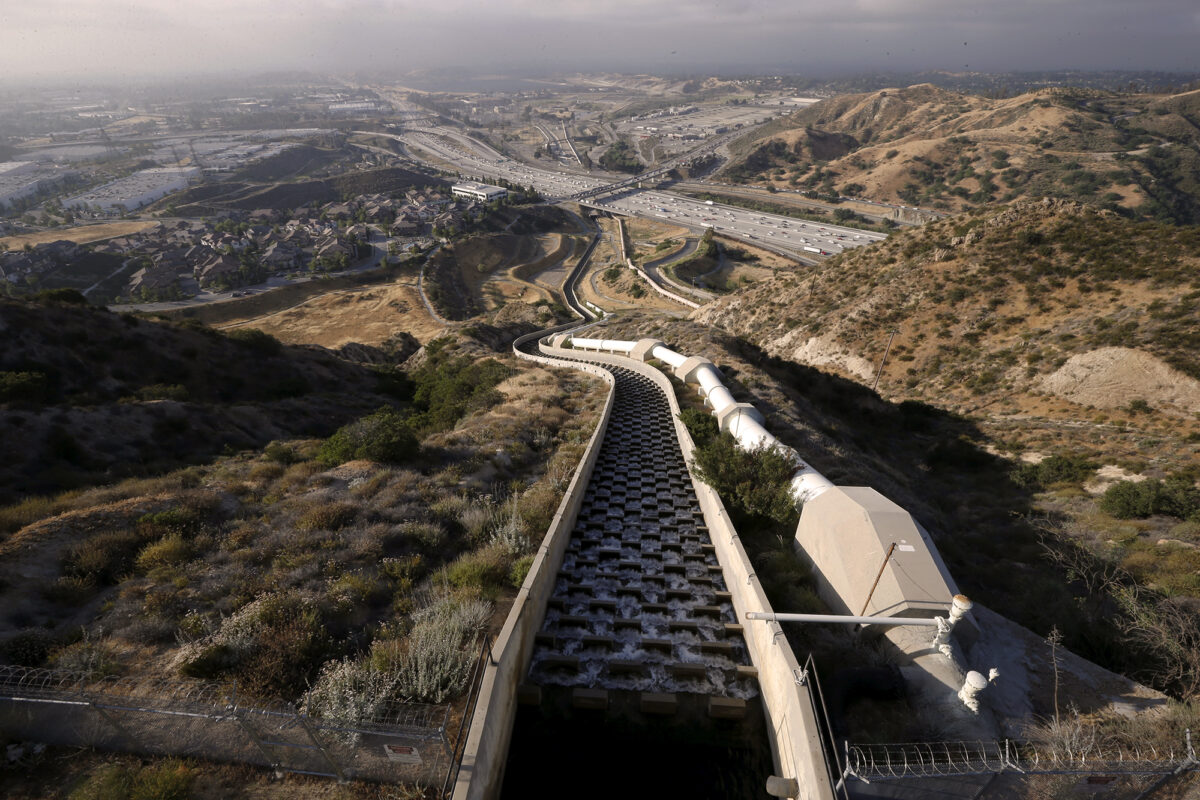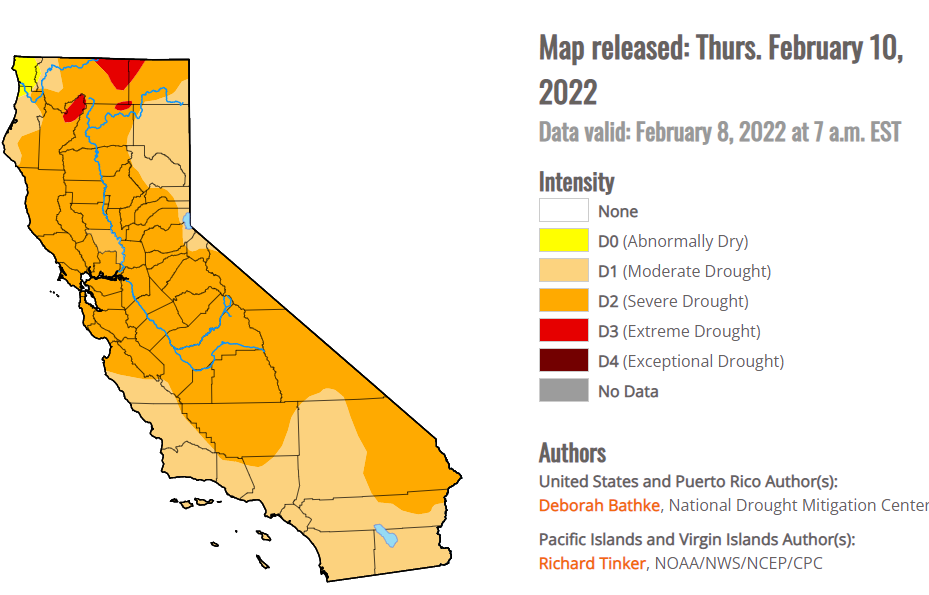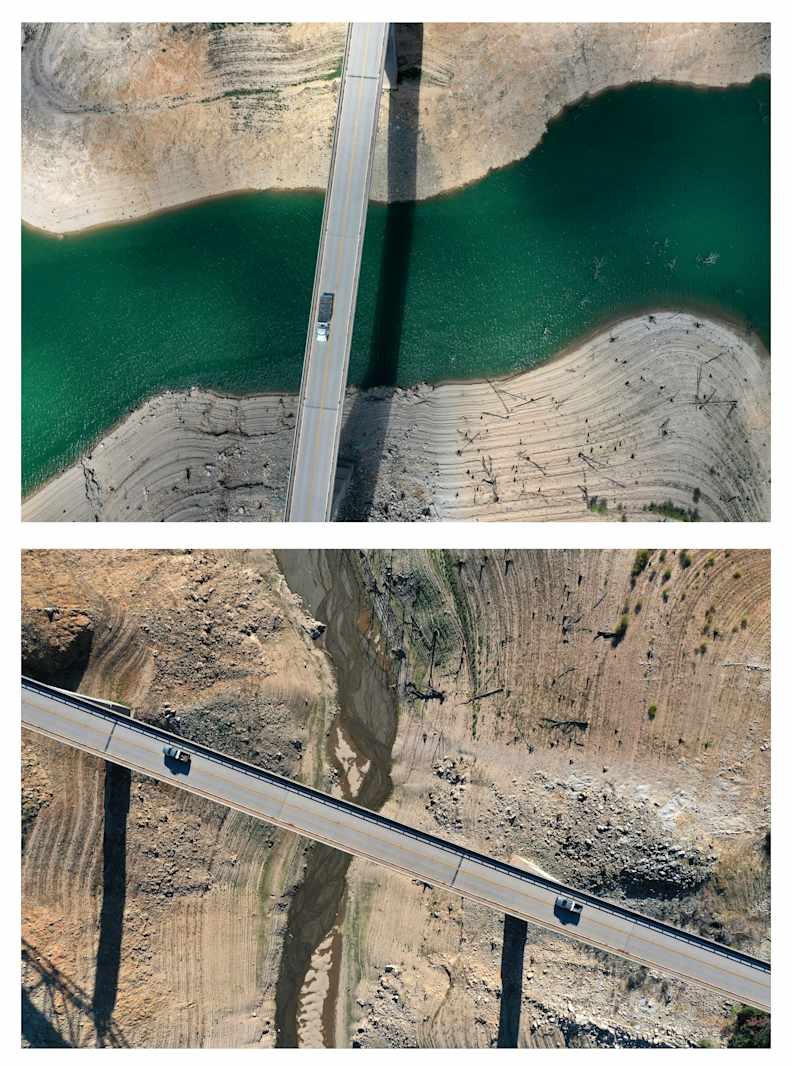
Help UCLA face the drought emergency
Despite the occasional rains in 2021, most of California remains in severe drought per the intensity ratings of the U.S. Drought Monitor. UCLA Newsroom even recently reported that all of southwestern North America is in a megadrought which is defined as lasting two decades or longer. To address the drought emergency, the Los Angeles Department of Water & Power (LADWP) has issued mandatory water conservation restrictions in the City of Los Angeles. This is in response to the severe water shortage California is experiencing across many of its water sources. In support, UCLA will be reducing irrigation and continuing to remove underutilized turf areas for conversion to native plants and study spaces.

Drought has many serious implications for California. For one, farmers suffer severe economic repercussions and are likely to face increased unemployment. Acres of farmland will become unusable and food prices will rise across the nation. Wildlife also feels the effects of drought as many freshwater fish can no longer safely lay eggs in low water conditions and many animals may lose their source of water. Some rural communities might also lose access to drinking water as their wells dry up and other communities become dependent on bottled water rations, making drought a social equity issue.
The Department of Water Resources (DWR) has a website to better inform Californians about hydrologic conditions, forecasts, and information at the scale of their local watershed. California Water Watch allows the public to obtain a quick snapshot of local and statewide water conditions and was developed as part of the Governor’s drought emergency proclamation. Information is updated from a variety of data sources and will assist the public to research, learn, and stay informed about California’s most precious resource – water.
What can you do to help?
There are many simple changes you can make, whether you live in residential housing or off-campus, that can contribute to reducing water usage. Below are some helpful tips to keep in mind.
- Turn off when lathering up: Turn off the faucet when washing up instead of letting the water run.
- Report a problem: When on campus, please report all leaks and water waste to Facilities at (310) 825-9236 or submit a work request online. You can also download the “UCLA Service” app on Android or Apple to report any issues on campus (and the app allows you to submit photos)
- Less time = water saved: Take shorter showers. Reducing your shower length by 4 minutes per day would save around 3,650 gallons of water per year (and conserve the energy required to heat the water).
- Turn off water while brushing: Turning off the faucet while brushing your teeth can save about 3 gallons each day. Only turn the water back on to rinse your brush and your mouth.
- Tray-free dining: For every tray that goes unused, we save 1/3-1/2 gallon water.
- Full load only: Make sure you have a full load when doing your laundry.
- Reuse towels: Do not wash towels after only one use, they are still clean enough for several uses.
- Report a problem: Please report leaks, broken sprinklers, and other excessive water waste by submitting a work order.
- Limit garbage disposal use: Purchase a sink strainer to trap food and other debris.
- Turn off the automatic ice maker: Don’t let it run continuously.
- Stop pre-rinsing: Most newer dishwashers are strong enough to clean without a pre-rinse.
- Consider the water footprint of your food: A pound of lettuce and cabbage have a water footprint of 15-24 gallons, while a pound of beef has a footprint of 2,500-5,000 gallons.
- Water plants in the morning or evening: There’s less chance of evaporation during this time.
- Report a problem: Please report leaks, broken sprinklers, and other excessive water waste by submitting a work order.
- Install low-flow devices: Low flow showerheads and faucet aerators are often distributed for free at community events and through your water agencies.
- Wash full loads: Only run the dishwasher or washing machine when you have full loads. This will cut back on excessive water, soap, and energy.
- Check for leaks: Check your irrigation and plumbing throughout the house for leaks. A leaking toilet, for example, could waste as much as 60 gallons per day.
- Use a broom: Avoid using the hose to clean sidewalks, driveways, and patios.
- Install a spray nozzle: When washing the car, install a spray nozzle to keep water from constantly running.
- Install drip irrigation: Drip irrigation is more efficient than sprinklers because it helps soaks the roots.
- Run sprinklers at night/early morning: Set the sprinklers to come on in the early morning during the winter and late at night in the summer to reduce evaporation from the sun or wind.
- Pull out turf grass: Many water districts offer rebates to remove turf grass. Replace it with drought-tolerant landscaping for extra savings.

